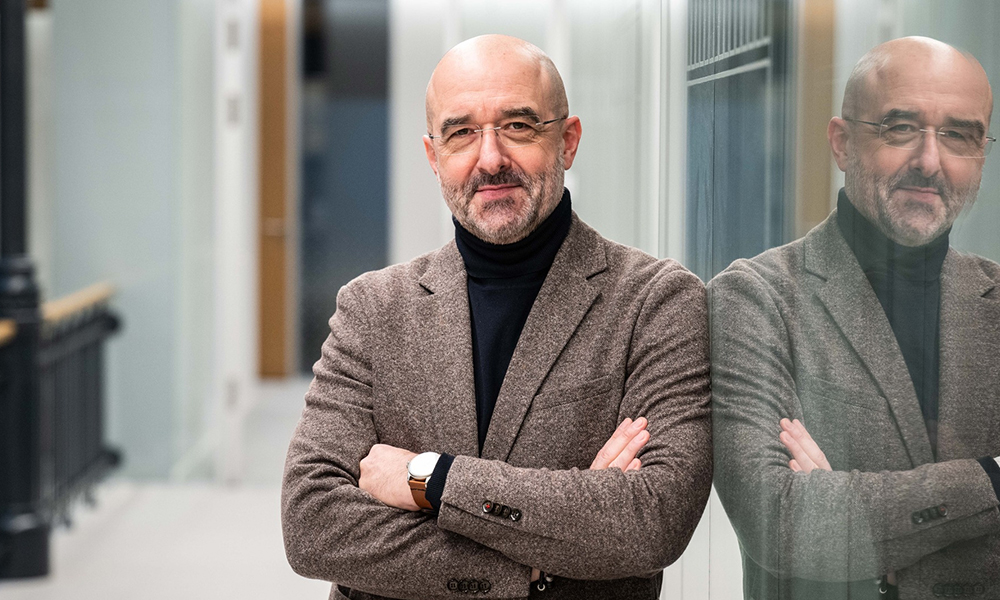
25 Apr Interview with Dr. Zoltan Kovacs, Secretary of State for International Communication, International Spokesman, Cabinet Office of the Prime Minister
BF: Your profile on social media platform X features an image with the phrase “The Bold Truth About Hungary.” What is the bold truth about Hungary that our readers, particularly in the U.S., should know?
Kovacs: In Hungary, we say what we mean and mean what we say. This approach has sometimes led to challenges, but it remains essential to our governance philosophy. We prioritize addressing issues directly rather than through an ideological lens. As a center-right conservative government, we have been working for the past 14 to 15 years to restore common sense to public and political discourse. Prime Minister Orbán believes in rationality and straightforward communication, which has proven beneficial. “The Bold Truth” encapsulates this approach and is also the title of my podcast, where we focus on speaking honestly about politics, the economy, and decision-making.
BF: Is Hungary’s reputation stronger or weaker than before?
Kovacs: Rather than qualifying it as better or worse, Hungary has certainly become more visible, largely due to our outspoken policymaking under Prime Minister Orbán. While sometimes controversial, this approach is effective. The Prime Minister often says, “Our best ally is reality.” By staying grounded in it, our message resonates. While some find our approach direct, many appreciate the clarity, especially after years of ambiguous political narratives. Domestically, this transparency has resulted in four consecutive constitutional, two-thirds majorities in parliament—a clear reflection of public support. Internationally, Hungary has become a reference point in policymaking. While our model is uniquely tailored to Hungary, its principles can be adapted elsewhere.
BF: Could you highlight key aspects of Hungary’s EU Presidency? Given recent elections in Europe and the U.S., do you foresee shifts in leadership or political orientation that could favor Hungary’s position within the EU?
Kovacs: When the Prime Minister presented Hungary’s EU presidency program in October, little attention was given to the program itself. Instead, discussions focused on Hungary’s domestic politics—an issue, as the European Parliament should prioritize European policies over internal matters of member states.
Hungary’s presidency agenda addresses urgent challenges, with competitiveness as a top priority. Europe has been falling behind in global markets and technological capabilities. The Twin Summit in November, attended by 47 delegations from the European Political Community, put this issue in the spotlight. The Budapest Manifesto laid the foundation for renewed discussions on European competitiveness, emphasizing the need for swift decisions.
Beyond competitiveness, our presidency has focused on European agriculture, migration, and the EU budget. However, ensuring Europe remains competitive in the global economy is our primary goal and a key achievement of our presidency.
BF: Considering the key events that have shaped the year, how would you assess Hungary’s economic performance in 2024, and what is the government’s outlook for 2025?
Kovács: 2024 has been a challenging year for Europe, and Hungary has felt these difficulties—rising costs, high inflation, and sanctions that, in our view, have had a greater economic impact on Europe than on Russia. These pressures have disrupted Hungarian exports and productivity, and we have been vocal about their negative effects. Our position is not about aligning with Russia but about assessing policies based on their actual economic consequences.
We are working toward ending these sanctions and restoring economic stability. Meanwhile, we’ve implemented structural changes to strengthen Hungary’s economy, welcoming investments from the U.S., China, and Southeast Asia. Major projects, such as the new BMW electric vehicle factory and Chinese investments in electric mobility, are reshaping our industrial landscape. These efforts should drive GDP growth, and we expect 2025 to be a strong year for Hungary’s economy.
BF: Given the alignment between Prime Minister Orbán and the incoming U.S. administration on several key issues, do you expect the U.S.-Hungary relationship to strengthen starting in January 2025? What are the Hungarian government’s expectations?
Kovács: Prime Minister Orbán and President Trump share a strong personal and political relationship, which matters in diplomacy. We anticipate this will positively influence U.S.-Hungary relations.
We also welcome the departure of the previous U.S. ambassador, whose ideological agenda strained ties. Despite this, the U.S. remains Hungary’s fourth-largest investor, and American businesses continue to find Hungary an attractive and supportive environment. Past tensions—driven by ideological disputes—created unnecessary obstacles. A shift toward pragmatism will benefit both countries.
Regarding broader U.S.-EU relations, Hungary, as an EU member, will be affected by any transatlantic trade disputes. However, President Trump is a dealmaker, and we believe a pragmatic agreement benefiting both the U.S. and Europe—including Hungary—is achievable.
BF: Beyond political proximity, shared values, and goals, how do you assess the relationship between Hungary and the U.S. up to this point? Could you provide insights into trade, investment, and any U.S.-led projects or cooperation in Hungary?
Kovács: Hungary is focused on attracting high-value, future-oriented technologies, welcoming top-tier investments from Germany, Korea, and China. There is certainly room for greater U.S. involvement as well.
For the past three to four decades, we have worked closely with American companies, and they consistently recognize Hungary as a strong investment destination. We encourage U.S. businesses to view Hungary not just as a standalone market but as a strategic entry point into the broader EU common market. This presents a win-win opportunity for both sides. In many ways, Hungary’s approach aligns with President Trump’s vision—promoting investment and domestic production instead of relying on imports from distant markets. Strengthening U.S.-Hungary economic cooperation will contribute to a more balanced and resilient transatlantic relationship.
BF: What would be your final message to the readers of this report?
Kovács: Common sense must prevail in navigating the challenges ahead. While the realignment of U.S. policies may bring tensions, these can and should be resolved through pragmatic, common-sense decisions that serve the best interests of all parties involved.

Sorry, the comment form is closed at this time.